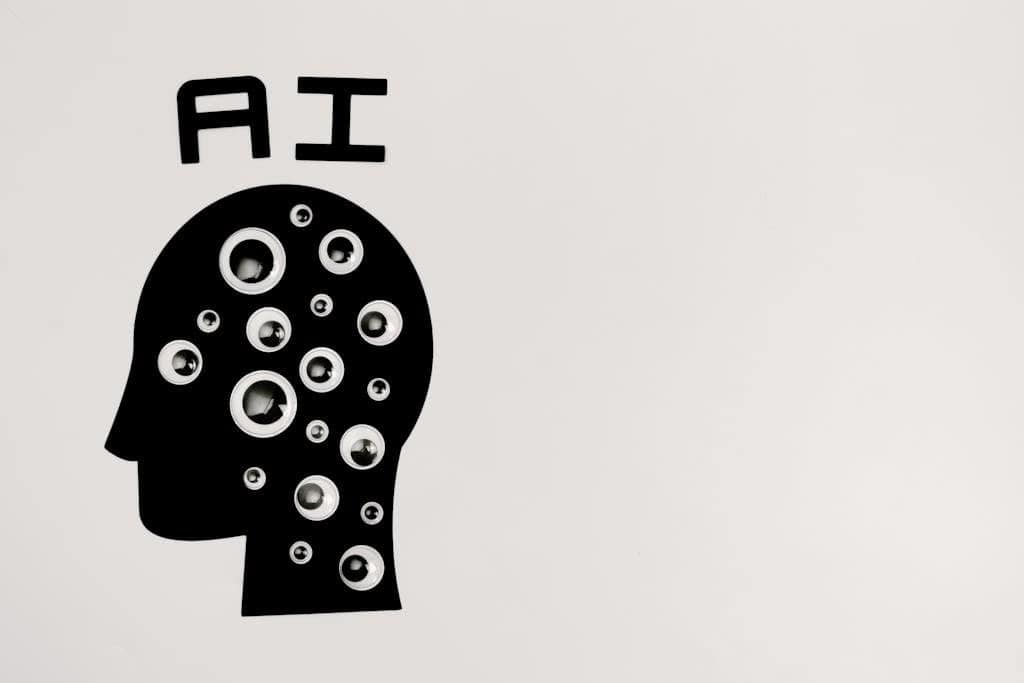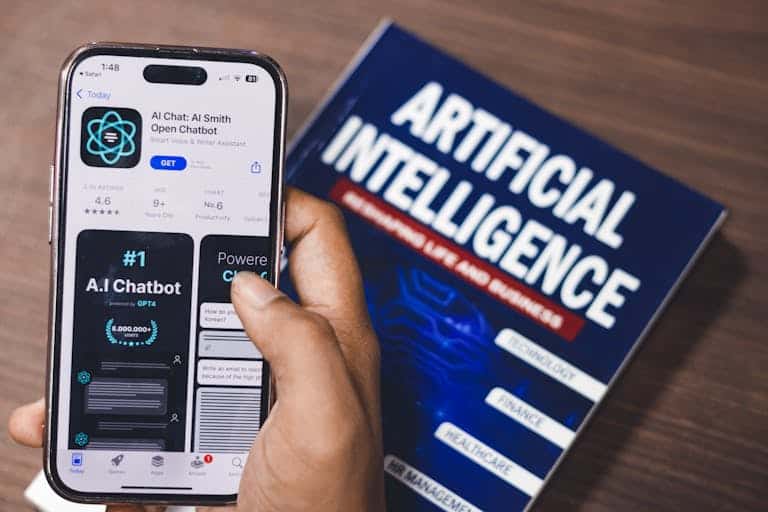The Impact of Machine Learning on Personal Development
Exploring the realm of machine learning unveils profound ways it can influence personal development. Here’s how this technology can be utilized to foster growth and improvement.
Machine Learning Basics
Machine learning, a subset of artificial intelligence, enables computers to learn from data without being explicitly programmed. By analyzing vast amounts of information, machine learning models identify patterns and make decisions with minimal human intervention. Here are some key points about machine learning:
- Data Analysis: Machine learning algorithms analyze large sets of data to identify trends and patterns.
- Learning Process: Supervised and unsupervised learning are two primary methods, where supervised learning involves using labeled data to train the model, and unsupervised learning finds hidden patterns in unlabeled data.
- Applications: Utilized in various fields such as e-commerce, media services, education, and healthcare.
Understanding these basics forms the foundation for how machine learning can be applied to personal development. For more on how AI is incorporated into self-improvement, visit our article on artificial intelligence in self-improvement.
Personalization in Daily Life
Personalization leverages machine learning to tailor services and experiences to individual preferences. This technology enhances customer satisfaction, loyalty, and overall engagement. Personalized experiences are now an integral part of our daily lives through various applications:
E-commerce Platforms
- Amazon: Uses machine learning to recommend products based on browsing and purchase history.
Media Services
- Netflix: Provides content recommendations tailored to individual viewing habits.
Online Learning Platforms
- Coursera: Suggests courses based on user interests and previous learning activities.
Healthcare Services
- IBM Watson: Provides personalized cancer care recommendations by analyzing patient data.
Here is a summary table of machine learning applications in various sectors:
| Industry | Application | Example |
|---|---|---|
| E-commerce | Product Recommendations | Amazon |
| Media Services | Content Suggestions | Netflix |
| Online Learning | Course Recommendations | Coursera |
| Healthcare | Personalized Care | IBM Watson |
Personalization in customer service also improves engagement by delivering timely and relevant suggestions (Sprinklr). Leveraging machine learning for self-help can provide customized experiences, aiding in personal growth and development based on individual behavior and preferences.
For more insights on using AI for self-improvement, check out our article on using AI for self-improvement. Machine learning’s role in personal development showcases its potential to transform how we approach self-help, making it more effective and tailored to each individual.
Machine Learning Applications for Self-Improvement
Machine learning is revolutionizing how I approach self-improvement, skill enhancement, and personal growth. Let’s dive into how these technologies can help me become a better version of myself.

Skill Enhancement Through Machine Learning
When it comes to artificial intelligence in self-improvement, one of the key advantages is skill enhancement. By leveraging machine learning algorithms, I can receive tailored recommendations that target my specific skill gaps. Online learning platforms like Coursera use machine learning to suggest courses based on my previous learning activities and interests (LinkedIn).
For example:
| Skill Area | Course Suggestions |
|---|---|
| Programming | Python for Everybody, Data Science Specialization |
| Writing | Creative Writing, Technical Writing |
| Project Management | PMP Certification, Agile Software Development |
These recommendations are designed to keep me engaged and help me progress at my own pace. By focusing on my unique needs, machine learning ensures I spend my time wisely, mastering the skills that will benefit me the most.
Personalized Recommendations for Growth
Personalized recommendations are another transformative aspect of using AI for self-improvement. Machine learning can analyze my behavior, such as my reading habits, exercise routines, and even my mood patterns, to provide suggestions that foster personal growth. Services like Netflix and Spotify use machine learning to recommend content based on my preferences, and this same technology is applied to self-improvement.
For instance, machine learning techniques like sentiment analysis can gauge my emotional state from the text I input into journaling apps (Simplilearn). This enables these apps to suggest activities or content that can boost my mood or help me manage stress.
| Personal Goal | Recommendation Type | Example |
|---|---|---|
| Reduce Stress | Meditation Apps | Calm, Headspace |
| Improve Fitness | Workout Plans | 7 Minute Workout, Nike Training Club |
| Enhance Diet | Nutritional Guides | MyFitnessPal, Lose It! |
These recommendations are not just generic advice but are tailored to fit my specific lifestyle and needs. By integrating machine learning into my daily routine, I can make smarter, data-driven decisions about my personal development.
Machine learning’s impact on personal growth is broad and multifaceted. To explore more ways AI can assist in personal growth, check out our resources on ai-driven personal development strategies and ai solutions for self-motivation.
Advantages of Leveraging Machine Learning in Self-Help
Machine learning is revolutionizing the way I can approach self-help and personal development. By analyzing vast amounts of data, these intelligent systems offer significant benefits like data-driven decision making and enhancing learning experiences.
Data-Driven Decision Making
Machine learning empowers me to make informed decisions based on data. These algorithms analyze extensive data sets to identify patterns and trends, enabling me to act on accurate insights.
For instance, by using machine learning for self-help, I can receive personalized recommendations tailored to my preferences and goals. Platforms that leverage AI algorithms can analyze my past behaviors, learning styles, and interests to suggest the best self-improvement activities, books, or courses. This means I no longer have to rely on guesswork to choose my next step in personal development.
| Machine Learning Benefits | Examples |
|---|---|
| Personalized Recommendations | Tailored book suggestions, custom workout plans |
| Predictive Analytics | Anticipating learning needs, performance trends |
| Enhanced Customer Engagement | Relevant and timely advice |
Machine learning’s capability in data analysis also extends to predicting outcomes. For instance, AI algorithms used in healthcare can anticipate potential health issues, enabling proactive measures (Simplilearn). This predictive power can be applied to personal growth, helping me foresee and prepare for challenges.
Enhancing Learning Experiences
Machine learning significantly enhances my learning experiences by offering a more personalized approach. Traditional learning methods often adopt a one-size-fits-all strategy, but machine learning tailors the process to fit my unique needs.
By utilizing machine learning, adaptive learning systems can adjust content delivery based on my progress and comprehension levels. For instance, if I’m struggling with a particular concept, the system can provide additional resources or simplify explanations. Conversely, if I grasp topics quickly, it can present more challenging material to keep me engaged.
| Learning Enhancement | Details |
|---|---|
| Adaptive Learning | Customizes content based on performance |
| Intelligent Tutoring | Real-time feedback and guidance |
| Interactive Learning Experience | Engaging multimedia content |
Machine learning also enables the creation of intelligent tutoring systems. These systems offer real-time feedback and guidance, helping me navigate through complex subjects efficiently. Furthermore, the incorporation of interactive elements such as quizzes, simulations, and games makes learning more engaging and effective.
To explore more about AI-driven personal development strategies, visit our page on ai-driven personal development strategies.
By embracing machine learning for self-help, I can elevate my approach to personal growth, making it more data-driven and tailored to my unique learning style. Whether it’s enhancing my learning experiences or making better-informed decisions, machine learning serves as a valuable tool in my journey toward self-improvement.
For further insights into the ethical considerations of machine learning in self-help, check out our dedicated section on ethical considerations in personalized machine learning.
Real-World Applications of Machine Learning for Personal Growth
Machine learning unfolds new avenues for personal development, offering practical applications that impact various aspects of our lives. Whether it’s gaining insights specific to an industry or receiving tailored recommendations, these applications make self-improvement more accessible and effective.
Industry-Specific Insights
Machine learning tools are invaluable for skill enhancement and career development. By analyzing patterns and trends within industries, machine learning helps individuals identify in-demand skills and techniques. This can be especially helpful for professionals looking to stay competitive.
According to Interview Query, employers value real-world case studies on resumes as they demonstrate hands-on expertise. Let’s consider an example:
| Industry | In-Demand Skills | Relevant Tools & Techniques |
|---|---|---|
| Healthcare | Data Analysis, Predictive Models | Python, R, IBM Watson |
| E-commerce | Customer Behavior Analysis | SQL, Machine Learning Algorithms |
| Entertainment | Content Recommendation | Collaborative Filtering, Neural Networks |
Machine learning case studies not only highlight these skills but also provide a platform to practice and demonstrate them. Using AI for self-improvement in such a manner can significantly enhance job prospects.
Customer-Centric Personalization
Personalization is one of the most profound applications of machine learning. From e-commerce platforms like Amazon to online learning platforms like Coursera and healthcare services like IBM Watson, machine learning models tailor user experiences based on individual data and preferences (LinkedIn).
Consider how machine learning helps in personalizing customer service:
| Platform | Personalization Strategy | Tools & Techniques |
|---|---|---|
| Amazon | Product Recommendations | Collaborative Filtering |
| Netflix | Content Recommendations | Neural Networks |
| Coursera | Course Suggestions | Data-Driven Algorithms |
| Healthcare (IBM Watson) | Treatment Recommendations | Predictive Analytics |
Machine learning enables these platforms to deliver personalized experiences in real-time, improving user satisfaction and engagement. For example, in customer service, machine learning integrates with tools like chatbots and virtual agents to provide tailored support, enhancing both agent productivity and customer satisfaction (Sprinklr).
For more on AI-driven personalization strategies, explore our article on AI-driven personal development strategies.
By leveraging machine learning, you can attain personalized growth experiences and stay ahead in your career. Embracing these tools enables a tailored approach to self-improvement, making your journey to becoming the best version of yourself more engaging and effective.
Challenges and Considerations in Machine Learning for Personal Development
When using machine learning for self-help, there are notable challenges and considerations one must address. Consistently analyzing data quality and respecting user privacy remain paramount.
Data Quality and Privacy Concerns
Data quality is fundamental in ensuring machine learning systems generate accurate and reliable insights. Poor-quality data can lead to erroneous conclusions and ineffective personal development strategies. For example, if the input data used to train the algorithms is incomplete or inaccurate, the resulting recommendations might not align with my needs.
To ensure data quality in machine learning, data needs to be:
- Complete
- Consistent
- Unbiased
A high-standard data set is crucial for the quality of personalization (LinkedIn). However, managing this data comes with significant privacy concerns. In order to personalize my experience, these systems often need access to sensitive personal information.
Protecting user privacy involves ensuring that all collected data is securely stored and handled. GDPR and other privacy regulations require transparency about how data is used. For more tips on handling personal data responsibly, take a look at our article on using ai for self-improvement.
Ethical Implications of Personalization
Ethics play a crucial role in the personalization offered by machine learning systems. Tailoring experiences to individual needs can drastically improve user satisfaction and engagement, but it also raises ethical questions.
Algorithmic Bias and Fairness
Machine learning models can perpetuate existing biases present in the training data. This can result in unfair or discriminatory outcomes. Algorithms must be routinely evaluated and updated to ensure they are fair and unbiased. Addressing bias in machine learning aligns with the goal of fair and equal ai-driven personal development strategies.
Transparency and Accountability
Users need to understand how machine learning algorithms make decisions. Transparency about how recommendations are generated fosters trust. Moreover, there’s an urgent need for accountability standards to govern AI practices, ensuring that systems are used ethically and responsibly.
| Area | Challenge | Consideration |
|---|---|---|
| Data Quality | Incomplete/biased data | Use consistent data |
| Privacy | Sensitive information management | Ensure secure storage |
| Algorithm Bias | Fairness in outcomes | Routine evaluations |
| Transparency | Understanding AI decision-making | Clear explanations |
Ethical implications require ongoing dialogue and regulatory oversight to ensure machine learning technologies serve the collective good. For further information, you might explore our discussions on artificial intelligence in self-improvement.
Machine learning holds remarkable potential for personal development, but it is vital to navigate these challenges with thoughtful consideration of data quality, privacy, and ethical implications.
Future Trends in Machine Learning for Self-Help
Machine learning is rapidly transforming the landscape of personal development. Understanding the future trends in this area helps us stay ahead and leverage the best technologies for self-improvement.
Market Growth and Projections
The machine learning market is experiencing significant growth. As a lifelong learner, I find it fascinating to see how the market is expanding and impacting various aspects of our lives. According to Itransition, the global machine learning market was valued at $19.20 billion in 2022 and is expected to grow to $225.91 billion by 2030, with a Compound Annual Growth Rate (CAGR) of 36.2%.
| Year | Market Value (billion USD) |
|---|---|
| 2022 | 19.20 |
| 2024 | 44.25 |
| 2026 | 102.10 |
| 2028 | 167.55 |
| 2030 | 225.91 |
The AI sector, encompassing machine learning, is projected to reach even greater heights. In 2023, the global AI market was valued at $538.13 billion and is forecasted to reach $2,575.16 billion by 2032, showcasing its immense potential for growth (Itransition).

Ethical Discussions in AI Development
With the rapid advancements in machine learning for self-help, ethical considerations have become a crucial topic of discussion. As I delve deeper into using AI for self-improvement, it becomes clear that the development and deployment of AI must prioritize fairness, transparency, and accountability.
Bias and Fairness: One of the primary ethical concerns is bias in machine learning algorithms. It’s essential to ensure that these algorithms are trained on diverse datasets to minimize biases that could lead to unfair treatment or decisions. Bias can manifest in various ways and negatively impact the effectiveness of AI-driven personal development tools. This raises the importance of continuously evaluating and updating algorithms to uphold fairness.
Transparency and Accountability: Another vital aspect is transparency in how AI systems operate and make decisions. As I explore AI-driven personal development strategies, understanding the decision-making process of these systems becomes essential. Providing clear explanations and maintaining transparency in AI operations helps users trust and effectively utilize these tools for self-help.
As AI continues to evolve, the discussions around ethics are expected to intensify. Balancing innovation with ethical considerations will be key to harnessing the full potential of machine learning for self-help while ensuring it benefits society as a whole. Keeping an eye on these trends allows me to make informed decisions and stay ahead in the realm of personal development with machine learning.
For more insights into the evolution and benefits of machine learning in various sectors, readers can explore practical implementations in our related article on artificial intelligence in self-improvement.
The Evolution of Machine Learning in Daily Life
Machine learning has become an integral part of our daily lives, offering innovative solutions across various sectors. As a lifelong learner, I find it fascinating to explore how machine learning can enhance our personal and professional lives.
Practical Implementations in Various Sectors
Machine learning applications span numerous industries, offering unparalleled improvements in efficiency and accuracy. Here are some practical implementations that I find particularly interesting:
- Healthcare: Machine learning is transforming healthcare by assisting in disease diagnosis, predicting patient outcomes, and discovering new drugs. It analyzes medical images like X-rays, MRIs, and CT scans to detect diseases early and personalize treatment plans (neurond).
- Finance: In the financial sector, machine learning aids in stock price prediction, risk management, and portfolio management. By analyzing historical data, news sentiments, and trading volumes, it can identify investment opportunities and assess borrower creditworthiness (neurond).
- Real Estate: Algorithms like Decision Trees and Linear Regression are used to predict housing prices and analyze market trends, providing valuable insights for real estate investors (Shelf).
- Entertainment: Streaming services use machine learning to recommend content based on viewing history and preferences, enhancing user experience.

Benefits of Machine Learning for Society
The benefits of machine learning for society are numerous and impactful. Here are some key advantages:
- Data-Driven Decision Making: By analyzing vast amounts of data, machine learning enables informed decision-making in personal and professional arenas (artificial intelligence in self-improvement).
- Enhanced Learning Experiences: Personalized educational tools and resources adapt to individual learning styles, making education more effective (ai-driven personal development strategies).
- Improved Healthcare: Early disease detection and personalized treatment plans improve patient outcomes, potentially saving lives (neurond).
- Financial Stability: Accurate risk assessments and predictive modeling in finance lead to better investment decisions and economic stability.
| Sector | Practical Implementation | Benefits |
|---|---|---|
| Healthcare | Disease diagnosis, Predictive modeling | Early detection, Personalized care |
| Finance | Stock prediction, Risk management | Better investment decisions |
| Real Estate | Housing price prediction, Market analysis | Informed investments |
| Entertainment | Personalized content recommendations | Enhanced user experience |
Using AI for self-improvement is an exciting field that offers endless possibilities. As we continue to embrace these advancements, the potential for personal growth and development is immense. For more insights on how AI can contribute to self-help, check out our article on using ai for self-improvement.
Machine learning’s role in daily life is expanding, making it a vital tool for lifelong learners like myself. From enhancing personal development strategies to providing data-driven insights, its benefits are manifold. By staying informed and embracing these technologies, we can continue to discover our best selves.
Ethical Considerations in Personalized Machine Learning
As I explore the realm of machine learning for self-help, understanding the ethical considerations becomes crucial. Machine learning algorithms can provide immense benefits, but it’s essential to navigate the ethical landscape carefully to ensure fairness and accountability.
Bias and Fairness in Algorithms
Machine learning algorithms are increasingly being applied in various sectors, from healthcare to criminal justice. However, bias in these systems can lead to unfair and discriminatory outcomes. For instance, the COMPAS algorithm, used for risk assessment in the criminal justice system, has been criticized for racial biases in predicting recidivism (Nature).
Bias in machine learning arises primarily from the data used to train the algorithms. If the training data contains biases, the algorithm will likely replicate and even amplify these biases in its predictions. This can have significant consequences, especially when applied to personal development tools that are meant to aid in self-improvement. Here’s a simple example to demonstrate the potential for bias:
| Algorithm | Bias Type | Impact |
|---|---|---|
| COMPAS | Racial Bias | Incorrect recidivism prediction |
| ML-HCAs | Data Set Bias | Inequitable healthcare outcomes |
| Customer Service Bots | Gender Bias | Preference for certain queries |
Ensuring fairness in these algorithms requires a concerted effort to diversify training data, apply bias detection methods, and continuously monitor algorithm performance. By addressing bias head-on, we can use artificial intelligence in self-improvement ethically and effectively.
Transparency and Accountability in AI Standards
Transparency in AI algorithms is another critical ethical consideration. Users of machine learning for self-help need to understand how decisions are made by these algorithms. Algorithmic transparency involves making the inner workings of AI systems accessible and understandable to all stakeholders. This not only builds trust but also ensures accountability in case of errors or biases.
Examples from various sectors illustrate the importance of transparency:
- Healthcare: Biases in machine learning healthcare applications (ML-HCAs), such as biases from training data sets, raise major ethical concerns (NIH).
- Customer Service: Discrimination in automated systems can occur if algorithms leverage biased data, leading to unequal service quality.
- Education: Personalized learning tools must be transparent to gain the trust of educators and learners alike. Transparency helps in understanding how educational content is tailored for individual needs.
Maintaining accountability involves documenting algorithmic decisions and providing mechanisms for users to challenge or appeal these decisions when necessary. It also requires ongoing evaluation and regulation to ensure these systems operate fairly and ethically.
By focusing on bias, fairness, transparency, and accountability, we can create more ethical and effective machine learning tools for personal development. Delving deeper into these aspects will enable me to harness ai-driven personal development strategies responsibly and pave the way for innovative, fair, and accountable AI solutions.






One Comment
Comments are closed.